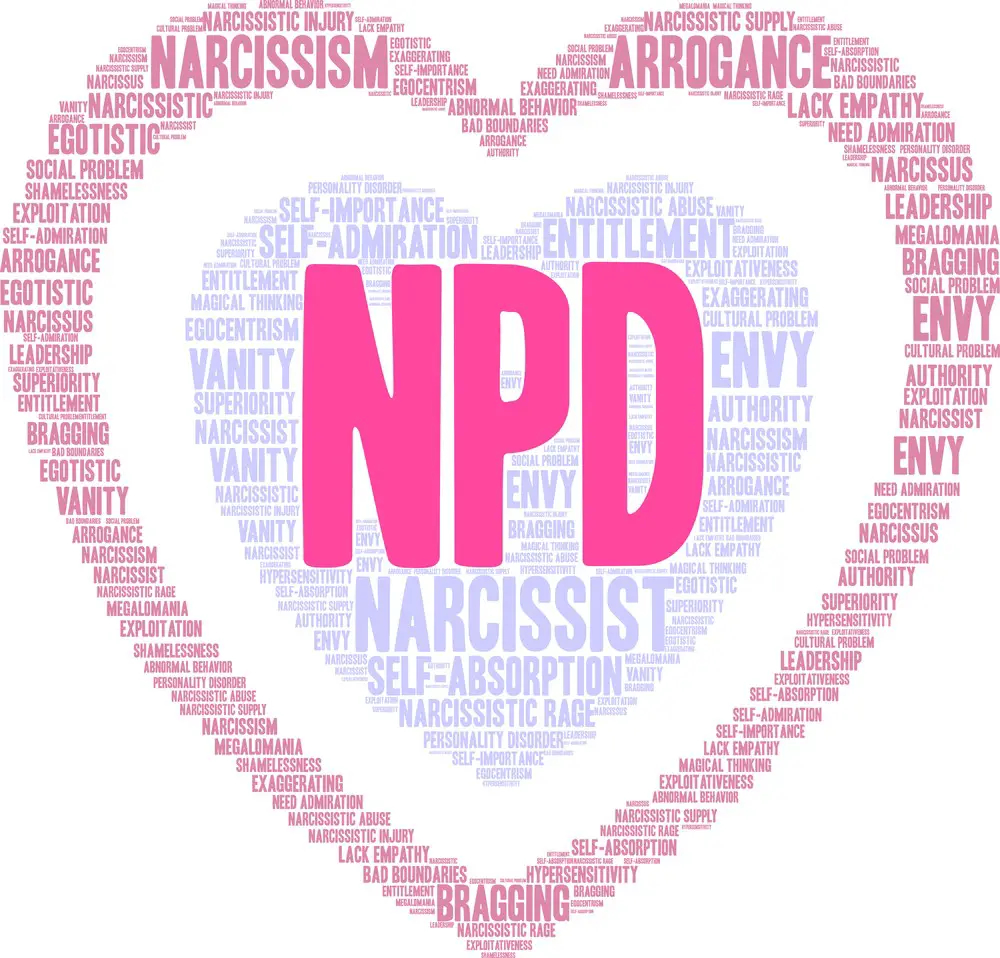Recognizing the red flags of a narcissist can be essential for maintaining one’s emotional well-being and ensuring healthy relationships. Narcissism, a personality disorder characterized by excessive self-admiration, lack of empathy, and an inflated sense of self-importance, can be highly destructive in interpersonal relationships. Understanding the warning signs of narcissistic behavior can empower individuals to identify problematic patterns and take appropriate action.
The following paragraphs will discuss some of the most common red flags that indicate the presence of a narcissist. This will include behaviors such as excessive self-focus, manipulation, and a constant need for admiration and validation. By becoming familiar with these signs, readers will be better equipped to identify narcissistic behavior and protect themselves from its harmful effects.
Understanding Narcissistic Personality Disorder (NPD)
Narcissistic Personality Disorder (NPD) is a mental health condition where an individual exhibits an excessive need for admiration, a sense of superiority, and a lack of empathy for others. It belongs to a group of personality disorders known as Cluster B. Due to their narcissistic traits, people with NPD often face problems in their relationships, work, and other life areas.

Key Characteristics of NPD
Several key traits characterize NPD:
- Grandiosity: A narcissist holds an inflated sense of self-importance and may exaggerate their achievements.
- Need for admiration: They seek constant praise and recognition from others.
- Lack of empathy: Narcissists often disregard the feelings of others, making them appear cold and unfeeling.
- Sense of entitlement: They believe they deserve special treatment and expect others to cater to their needs.
- Manipulation: Narcissists may manipulate others to achieve their goals or maintain control.
These traits can manifest in various degrees and may present differently in each individual.
Covert and Overt Narcissism
There are two primary forms of narcissism: covert and overt.
Covert narcissism, also called vulnerable narcissism, is characterized by a more introverted and passive-aggressive expression of narcissistic traits. Covert narcissists may initially seem shy or insecure but can become hostile when they feel threatened. They often harbor feelings of inadequacy and may engage in self-pity.
Some traits of covert narcissists include:
- Social withdrawal
- Hypersensitivity to criticism
- Passive-aggressive behaviors
- Discontent and envy of others’ success
On the other hand, overt narcissism, or grandiose narcissism, is the more recognizable form of NPD. Individuals with overt narcissism display their narcissistic traits openly and without reservation. They may come across as arrogant, charismatic, and self-confident.
Common traits of overt narcissists are:
- Dominance and assertiveness
- Exaggeration of achievements
- Manipulation of others for personal gain
- Lack of empathy for others
Both forms of narcissism can cause difficulties in relationships, work situations, and personal growth. Recognizing these red flags can help individuals better understand and manage interactions with people who have NPD.

Recognizing Red Flags in Relationships and Interactions
Early Warning Signs
Recognizing red flags in dating and long-term relationships can be crucial for identifying potential narcissism. One of the first and most evident signs is a lack of empathy, where a person cannot genuinely show compassion and support for others. Narcissists may also have an unrealistic sense of entitlement, believing they deserve special treatment or privileges. Additionally, arrogant behaviors and attitudes might be apparent early on, along with manipulative and deceitful tactics.
Narcissists often present a charming façade at the beginning of a relationship, known as love bombing, showering their partner with excessive attention and affection. During conversations, the narcissist may dominate the discussion while taking little interest in their partner’s experiences or feelings, revealing their self-centered nature. Other early warning signs include a tendency to be overly concerned with appearance and a history of aggression or bullying in past relationships.
Manipulation Tactics and Techniques
Narcissists employ various manipulation tactics to maintain power and control in personal and professional relationships. One common method is gaslighting, where narcissist manipulates their partner’s reality by repeatedly denying or twisting the truth. Consequently, the victim may experience confusion, stress, and low self-esteem.
Another manipulation technique is triangulation, in which the narcissist pits two parties against each other to create jealousy and insecurity. For example, a narcissist might share stories of their exes to make their current partner feel inadequate or envious. Furthermore, narcissists can use future faking – making grand promises about a shared future that never materializes – to keep their partners invested and loyal.
In the workplace, narcissists may exploit their coworkers for personal gain, showcasing a pattern of entitlement and arrogance. These individuals might take credit for others’ work, seek admiration, and play office politics to climb the corporate ladder.
How to Deal with Narcissistic Abuse
If you are in a relationship with a narcissist, taking steps to protect yourself and seek support is critical. Contact a trusted friend or therapist to discuss your concerns and feelings. Setting and maintaining boundaries can help minimize your vulnerability to manipulation. Keep a record of interactions, and educate yourself about narcissistic abuse to understand better the patterns of behavior and techniques used.
In instances of domestic violence or threatened physical harm, it is crucial to prioritize safety and seek help from a local domestic violence organization or law enforcement. Finally, remember that healing from narcissistic abuse is possible, and connecting with fellow survivors can provide invaluable encouragement and understanding.

The Impact of Narcissistic Abuse in Various Relationships
Narcissistic abuse can significantly impact different relationships in a person’s life. This type of abuse stems from a lack of empathy, making it challenging for survivors. Let’s explore the effects of narcissistic abuse on romantic partners, family members, and friends.
Effects on Romantic Partners
Narcissistic abuse in romantic relationships often involves manipulation, gaslighting, and emotional abuse. The narcissist may:
- Devalue their partner by belittling or demeaning them
- Control their partner’s actions, isolating them from friends and family
- Manipulate situations to always make themselves the victim
These actions can make the survivor feel inadequate, anxious, and constantly on edge. Over time, they may experience a loss of self-esteem, affecting their ability to trust and form healthy relationships in the future.
Consequences for Family Members
Family members of narcissists also experience significant impact as the narcissist attempts to control and manipulate them. In a family setting, the narcissist may:
- Create conflicts within the family, pitting members against each other
- Demand attention, expecting constant praise and adoration
- Ignore or belittle the needs and emotions of their family members
Family members may feel as though they must carefully navigate their interactions with the narcissist, leading them to be wary and have strained relationships with one another.
Effects on Friends
Narcissistic abuse can extend to friendships as well. A narcissist’s lack of empathy can cause them to prioritize their needs above others. Friends of narcissists may experience:
- One-sided relationships where the narcissist only takes without giving back
- Manipulation through guilt or flattery to keep the friend’s loyalty
- Disregard for the friend’s feelings and personal boundaries
As a result, friendships may deteriorate, leaving those affected by narcissistic abuse feeling unheard, unsupported, and invalidated. The impact of narcissistic abuse can be damaging, but recognizing these red flags is crucial for healing and establishing healthier relationships in the future.
Recovering and Moving Forward from Narcissistic Abuse
Setting Boundaries and Seeking Support
Recovering from narcissistic abuse is a challenging process. Survivors must prioritize setting boundaries to protect themselves from further manipulation and harm. This may involve cutting off contact with the narcissist or establishing strict limits on communication. Building a strong support system is essential in this journey. Connecting with friends, family or even joining a support group can provide encouragement and validation. It is also beneficial to seek professional help from a knowledgeable therapist about narcissistic abuse and its effects.
Strategies for Emotional Healing
Finding ways to cope with stress and emotional turmoil is crucial for survivors of narcissistic abuse. One of the key strategies is self-care, which includes activities that promote physical, mental, and emotional well-being. This can involve daily exercise, getting enough sleep, and practicing mindfulness or meditation. Also, survivors should be permitted to feel and express their emotions healthily.
Journaling is another effective tool for processing emotions and thoughts. Writing about their experiences can help survivors gain insight and perspective, which can foster healing and personal growth. Furthermore, engaging in creative activities, such as painting, drawing, or writing, can be a therapeutic outlet for emotional expression.
Frequently Asked Questions
Lack of Empathy?
Narcissists often lack empathy towards others, which can manifest in different ways. They may struggle to understand or appreciate the feelings of others, have difficulty offering emotional support, and may even disregard others’ emotions altogether.
Manipulative Behavior?
Manipulative behavior is a common trait among narcissists. They may use manipulation tactics like deceit, flattery, or guilt to gain control and influence over others for personal gain or to maintain their superiority. These behaviors can be subtle or overt and often leave their victims feeling confused and hurt.
Constant Need for Praise?
A hallmark characteristic of narcissists is their constant need for praise and adoration. They seek compliments, attention, and validation from those around them to maintain their inflated self-image. This needs for praise can become draining for others, as narcissists are often uninterested in reciprocating the attention they demand.
Jealousy and Envy?
Narcissists are prone to envy and jealousy, feeling threatened when others succeed or receive admiration. They may become hostile, resentful, or passive-aggressive towards those who outshine them or pose a perceived threat to their superiority. This can lead to attempts to undermine others’ accomplishments or take credit for others’ successes.
Lying and Exaggeration?
Lying and exaggeration come naturally to narcissists, who strive to present themselves as superior, accomplished, and impressive. They may fabricate stories or experiences, exaggerate their achievements, or minimize their mistakes to uphold their grandiose self-image. This dishonest behavior can be damaging to relationships and their credibility.
Sense of Entitlement?
A strong sense of entitlement is evident in narcissistic individuals. They believe they deserve special treatment, privileges, or rewards simply because of who they are. This sense of entitlement can manifest in a lack of gratitude, demanding behavior, or insensitivity to the needs and feelings of others.
- The Burnout Epidemic: Why We’re All Feeling Overwhelmed and How to Cope - February 9, 2024
- How to Live a Peaceful Life - February 9, 2024
- Useful Information You Should Know About Health Screenings - February 8, 2024
This site contains affiliate links to products. We will receive a commission for purchases made through these links.



